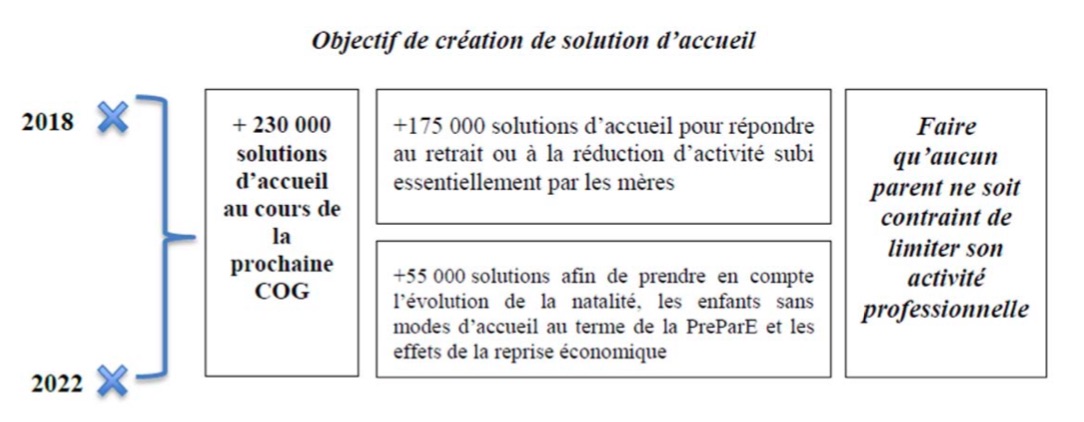According to a recent study conducted by Inserm, children who have attended collective childcare (nursery, maternal assistance, etc.) encounter fewer emotional problems or relationship difficulties.

Many parents find that it is more fulfilling for their children to stay with them during their first years of life, before they enter kindergarten. Theories come and go about the place of the child from 0 to 3 years old: is it with its parents, or is it beneficial that it interacts with others from an early age? Are children under 3 really ready to evolve in a community? What about infants?
Less relationship difficulties between 3 and 8 years old
Researchers from Inserm as well as the universities of the Sorbonne and Bordeaux have studied the influence of childcare during the first three years of life on the behavioral and emotional development of children. To do this, they relied on 1428 children from the EDEN cohort (Study on the Early Pre- and Post-natal Determinants of Psychomotor Development and Child Health), who followed mothers during their pregnancy and their children up to 8 years old. “The mothers reported the main type of childcare used for their child at 4 months, 8 months, 1 year, 2 years and 3 years: informal childcare (mainly parents and sometimes grandparents, neighbors …) , maternal assistant or group childcare (daycare, crèche) “.
Then at age 3, 5 and a half, and 8, they completed a questionnaire designed to measure behavioral and emotional symptoms across 5 scales (emotional symptoms, relationship problems, hyperactivity-inattention, behavioral problems, and prosocial behavior) .
The results are clear: children who have attended “a group childcare arrangement are less likely to experience emotional problems or to encounter relationship difficulties between the ages of 3 and 8. They also have a more prosocial behavior, that is to say more empathetic” , due to the fact that they learned early on to be kind to younger children and to share. “Access to collective childcare between 0 and 3 years old represents an opportunity for the children who benefit from it, since it is associated with better psychological and emotional development afterwards,” explains Maria Melchior, researcher at Inserm.
At what age between 0 and 3 years old can the child be enrolled in a crèche?
In France, babies are accepted in a crèche from 2 months old. Corn according to Miriam Rasse, nursery psychologist and director of the Pikler-Loczy Association, their “main task is to build their individuality and not to pay attention to others. It is important to remember that at birth, the child is born. is unaware that he is another person. He merges with his mother, his entourage or his environment. Around 8 months, he begins to understand that he and his mother do not form a whole, hence the fear of the separation”.
At what age between 0 and 3 years old is it therefore beneficial to enroll your child in a crèche? Asked about the subject, Maria Melchior explains to us that if her study has demonstrated that a collective childcare arrangement stimulates the emotional and relational development of children, their age of entry into nursery has not been specifically studied. “We have, however, noticed that children enrolled before 12 months derived favorable long-term benefits. As did those who stayed there for more than a year, compared to others who stayed there for a shorter period.” The researcher adds that the child can build his individuality through contact with other children or adults other than his mother. According to her, the educational follow-up, the structured activities and the supervision of the professionals are determining factors in the result of her study.
The shortage of childcare solutions in France
Even if these results are encouraging, there remains a reality: the shortage of reception solutions in France makes the care of children under 3 difficult. According to 2016 report of the National Observatory of Early Childhood of the Caf, on January 1, 2016, France had 2.3 million under 3 years of age and 56% of them had a place in one of the different official childcare arrangements (crèche, nursery school, nursery assistant or job in residence). “The theoretical reception capacity of ‘formal’ childcare for 100 children under 3 has therefore increased”, since it went from 50.5 places in 2010 to 56.1 places in 2014, but remains insufficient.
“The current supply of reception methods is still far from meeting demand, both quantitatively and in terms of its diversity and location”, notes the 2018 report of the High Council for the Family, Children and Adolescents (HCFEA) on “the reception of children under 3 years old”. By 2022 and considering demographic, political and economic developments, the HCFEA estimates that an effort must be made to create 230,000 additional reception solutions.

Source: 2018 report from the High Council for the Family, Children and Adolescents (HCFEA).
.

















